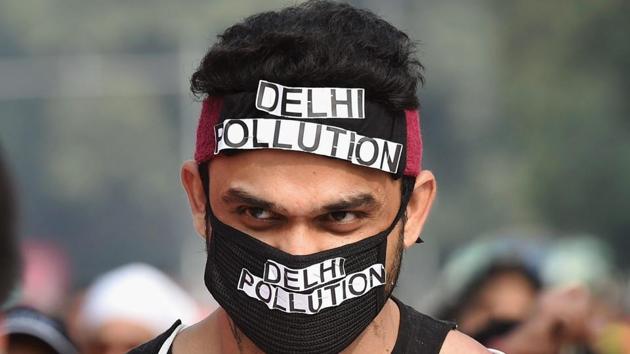30% premature deaths in India due to air pollution: CSE report
Revealing the links of air pollution with mental diseases, a CSE report said air pollution was responsible for 30% of premature deaths in India while every third child in Delhi has impaired lungs,
Highlighting major links between environment and health, a study released in New Delhi on Monday held lifestyle diseases like obesity, mental health, cancer and heart diseases to count a few, as the major killers in India.

Revealing the links of air pollution with mental diseases, a report by Centre for Science and Environment (CSE) stated that air pollution is responsible for 30 per cent of premature deaths in India while every third child in Delhi has impaired lungs.
“Over 61 per cent of total deaths in India were attributed to lifestyle or non-communicable diseases (NCDs)... More than 1.73 million new cancer cases likely to be recorded each year by 2020, air pollution, tobacco, alcohol and diet change are primary triggers,” said the report “Body Burden” released by CSE.
“Air pollution causes 30 per cent of all premature deaths in the country; linkages with mental diseases revealed in the study,” the report added.
It further pointed out that every 12th Indian is a diabetic.
“India ranks second in the list of countries with highest diabetes patients,” the report stated.
The report establishes that unless environmental risk factors are acknowledged and dealt with, India will not be able to curb NCDs.
According to the World Health Organization (WHO), there are four major risk factors for NCDs -- alcohol, tobacco, poor diet intake and lack of physical activity, which the WHO claims could be dramatically reduced by investing just USD 1-3 per year per person.
The CSE report, however, confronts the WHO estimation, asserting that much more investment would be required for India.
“We believe the cost is going to be much higher considering that risk factors in India are many more than the four identified by the global body,” said Sunita Narain, director general, CSE and member Supreme Court-appointed Environment Pollution Control Authority (EPCA).
Explaining the reasons behind this, Narain said that the identified risk factors -- alcohol, tobacco, poor diet, and lack of physical activity -- have multiple targets and can cause diseases which are not generally linked to them.
“For example, exposure to pesticides is known to cause cancer, but new data is emerging to link it to diabetes as well,” she says.
Similarly, air pollution is known to cause Chronic Obstructive Pulmonary Diseases (COPD), but there is little understanding on how this can adversely affect mental health.
“Targeting environmental risk factors is essential if we want to meet the Sustainable Development Goal 3.4, which mandates a one-third reduction in premature deaths due to lifestyle diseases by 2030,” says Vibha Varshney, the lead writer of the report that highlights linkages of pollution to mental health.
Get Current Updates on India News, Lok Sabha Election 2024 live, Infosys Q4 Results Live, Elections 2024, Election 2024 Date along with Latest News and Top Headlines from India and around the world.



